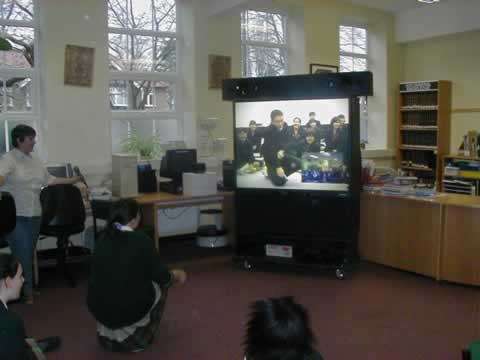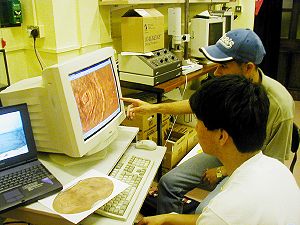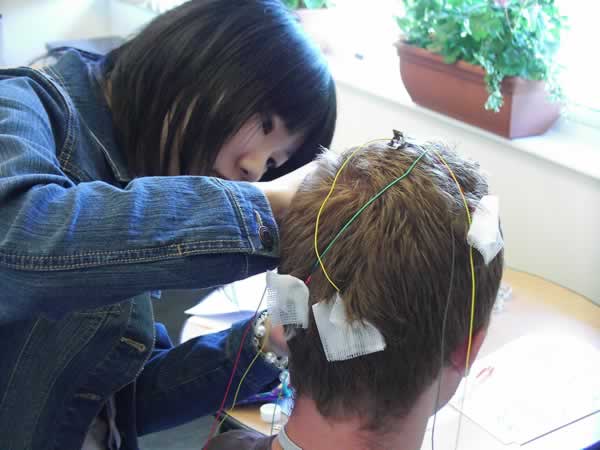Membership List | Publications | Research | Profiles | Braided Learning Ejournal
 Linking
Teachers in the UK and China
Linking
Teachers in the UK and China
Why and how | Making contact | First meeting | Second meeting | Teacher Training | GCSE Vocational | Partner Schools | Poskole 2007 | Holy Cross | Beijing Academy of Educational Sciences | SSAT | Forum Discussion
Working with China - why and how?
Lawrence Williams
Assistant Head Teacher, The Holy Cross School, and
Lead Practitioner in ICT Specialist Schools and Academies’ Trust
Abstract
This paper asks why we should link our schools with educators in China, gives the background to a London comprehensive school’s approach to previous international collaborations, and describes early attempts to forge new links with Chinese schools and colleges. It then presents case studies of successful collaborations with schools and universities in several countries, most notably with Japan, and ends with a hyperlink to further information about how to undertake, develop and evaluate such projects.
Follow the links for detailed outlines of international drama, science and music projects.


(Not to scale……) ?
![]() (Roughly to scale….) !
(Roughly to scale….) !
Why link with China?
The following points are taken from a speech by the Rt. Hon. Gordon Brown MP, Chancellor of the Exchequer, given at the Academy of Social Science, Beijing, China on 21st February, 2005:
• “Our aim is to encourage UK education and training providers
to work internationally in partnership with business
• We want to make the UK an international leader in the creative and
supportive use of IT for education
• We want to promote the role of our universities as international
hubs for learning and research
• And we want to promote further expansion in the number of international
students at UK further and higher education institutions – both in
Britain and in off-shore campuses abroad like those already being pioneered,
here in China, by Nottingham University and Napier University.”
Background
The Holy Cross School, a specialist Science College in Kingston, Surrey, is currently working with the Specialist Schools and Academies’ Trust to meet each of these aims, and what follows here is information about a series of projects that other schools might wish to consider, when developing their own links with China.
Holy Cross has been working with middle schools, high schools, and universities in Japan, the USA, and elsewhere for over ten years, and some of the projects developed using email, video-conferencing, and the internet, are applicable in principle to educational collaborations with China.
The focus of our work is in bringing students in different countries together in peaceful understanding, through music, dance, and drama, as well as through cultural and scientific collaborations (open a PDF document with further ideas).
Current work with China
The Holy Cross School is currently developing a series of projects with schools and colleges in Beijing. A report on how these links were formed can be found on the MirandaNet web site under the International MirandaNet section UK-China links.
We are now creating hyperlinks between the various web pages and web sites that carry our projects, so that teachers can more easily find suitable project materials and case studies for their consideration. The Specialist Schools and Academies Trust is kindly providing web space for this work, so that ideas can be shared across the specialist schools in the UK. See page three of the August ICT for a report on our work with China, so far: Chinese Connections (pdf file). What follows is a series of descriptive headings, with hyperlinks to relevant web materials.
Email correspondence.
This section is currently under development, and will show in detail how initial email correspondence with teachers and teacher trainers in China became translated into working, and hopefully successful collaborations, at different levels.
The following ICT projects were developed with partners in Japan and the USA, but can be easily adapted for similar project work with Chinese schools
Two Drama Case Studies:
1. A Classroom Drama Project about Shakespeare, linking London students with students in Osaka. Illustrated.

Key words: Email, drama and video-conferencing, international.
2. An International Drama Project, with a play performance of “The Kabuki Gift”, by Douglas Love. This was performed in two countries simultaneously, with the music and costumes developed in both countries. Text only. (Before the age of digital cameras!) (Follow this linke to open a PDF file about this project. Note: You will need to scroll down through a series of other projects to reach “Kabuki Gift”.)
Key words: Drama, cross-curricular work, international
International Science Projects:
1. Japan 2001 “Science, Creativity and the Young Mind”, developed with the Clifton Scientific Trust, and with a web site in English and Japanese. Students worked in international groups to explore “Real World” scientific problems. This week-long event was hosted by Bristol University, and later presented at the ASE Conference. This project included an exploration of the formation of volcanoes on Mars, and was the fore-runner of the Science Through Arts Project detailed below. Illustrated.

Key words: Science, multinational, collaboration, creativity.
2. Science Through Arts, or STAR: This is an international science collaboration devised by The Holy Cross School and developed with NASA scientists in Cleveland, Ohio, USA. The aim is to study appropriately selected NASA space science data on the web, and to transform it into narrative work, film scripts, poetry, music, and art. Learning outcomes by students are then posted on the NASA web site. See further STAR web sites below. Illustrated.
The Holy Cross Integrated Web Site for STAR. This is a Teachers’ Support Site for those working on the STAR Project. It does what it says on the tin. There are links to other useful web sites from here, to encourage teachers to work in this cross-curricular way. It includes sections on the pedagogy, some video-conferencing partnerships, English lesson plans, and the history of the project.
The Learning Outcomes of Holy Cross students working on the STAR project are displayed on the NASA web site, in the USA. They show the high quality of work completed by students in a south London comprehensive school:
Year
7 work (2003) Narrative
Year
7 work (2004) Play script
Year
7 work (2005) Film scripts and freeze-frames
Year 12
work (2006) AS Level coursework in English
Key words: Science, multinational, cross-curricular.
3. UK- Japan Young Scientists Workshop, held at Surrey University, August 2006. Working with academics from Surrey University, students from UK and Japanese secondary schools worked to solve “Real World” science questions, such as global warming, nanotechnology, and water for the world. Illustrated.

Key words: Science, international, Real World.
Music
An International Music Festival – This is an annual event, raising money for UNICEF simultaneously in London and Osaka. Students sing, dance, act and share Christmas festivities by video-conference. It’s the highlight of the Holy Cross School year. We definitely plan to carry this idea forward in our links with China, now using IP instead of ISDN links.
Academic links with other countries
Macedonia (University level, on
MirandaNet)
Poland (University level, on MirandaNet)
Czech Republic (Poskole Project)
South
Africa (staff training, school level, on MirandaNet) with
Learning
outcomes for the South African students
Further information
Most of these projects have been presented as annual lectures at the International ICT Conference, Poskole, in the Czech Republic, from 1997 to the present.
The STAR Project was presented at the NECC Conference in Seattle (2003), and New developments in STAR were presented at the World Conference on Computers in Education, Cape Town, July 2005.
Most of these projects are published on MirandaNet as: Papers by Lawrence Williams.
For further details or clarification, contact by email or through the Specialist Schools and Academies Trust.

Holy Cross School
[Back]

